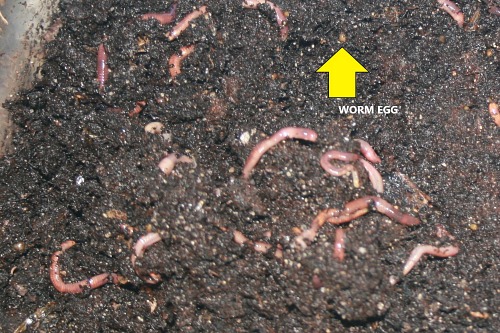Red Wiggler Express: Supporting Anglers with High-Quality Worms
Red Wiggler Express: Supporting Anglers with High-Quality Worms
Blog Article
The Amazing Globe of Red Wigglers: Boost Your Soil Fertility Today
These small yet effective microorganisms transform organic waste right into important worm spreadings, substantially improving dirt health and wellness and promoting sustainable practices. As we discover the advantages of vermicomposting and the practical steps to create an effective worm container, the possible impact of these worms on your gardening success ends up being progressively obvious.
Understanding Red Wigglers
Red wigglers, medically referred to as Eisenia fetida, are a types of earthworm that play a crucial duty in improving soil fertility. These worms grow in organic-rich atmospheres, such as compost heap and decomposing plant product, where they consume organic waste and eliminate nutrient-dense spreadings. Their unique composition, including a fractional body and a clitellum, permits them to reproduce quickly and effectively process big quantities of natural matter.

The environmental relevance of red wigglers extends beyond simple waste handling; they add to the soil food internet, promoting a diverse neighborhood of microbes that better enhance soil health and wellness. Comprehending the biology and habits of red wigglers is important for using their complete potential in sustainable farming and gardening practices.
Advantages of Vermicomposting
(Red Wiggler Express)Taking advantage of the power of red wigglers via vermicomposting deals various benefits that substantially boost soil health and fertility. Among the primary benefits is the production of nutrient-rich worm spreadings, which are an excellent natural fertilizer. Red Wiggler Express. These castings consist of crucial nutrients like nitrogen, phosphorus, and potassium, advertising robust plant growth and improving crop returns
The existence of worm castings boosts soil appearance, permitting for far better water retention and drainage. Red wigglers aid damage down natural issue, speeding up decay and reusing nutrients back into the dirt.
Vermicomposting likewise promotes microbial task, which is vital for a healthy and balanced soil ecological community. Beneficial bacteria flourish in the visibility of worm spreadings, helping in the failure of natural products and boosting nutrition availability to plants.
Lastly, vermicomposting functions as an effective waste management option, decreasing landfill waste by recycling kitchen area scraps and other organic products. This not only contributes to ecological sustainability yet additionally promotes a circular economy within horticulture and agriculture.
How to Establish a Worm Container
Establishing a worm bin is an uncomplicated procedure that can significantly improve your composting initiatives. Begin by selecting an appropriate container, which can range from a readily available worm bin to a straightforward plastic or wooden box (Red Wiggler Express). Guarantee the container has adequate air flow; small openings in the cover and sides will certainly facilitate air flow
Next, produce a bedding layer to supply a comfy setting for the red wigglers. This can be made from shredded paper, cardboard, or coconut coir, moistened to a moist, sponge-like uniformity. Fill up the container to around one-third full with this bed linen product.
Once the bedding is prepared, it's time to present the worms. Red wigglers prosper in natural waste, so area them gently onto the bed linens. Cover the worms with a light layer of added bedding to aid them adjust.
Feeding Your Red Wigglers
Offering the best food for your red wigglers is important for their wellness and the performance of your composting system. Red wigglers grow on a different diet, mainly containing organic materials such as vegetables and fruit scraps, coffee grounds, and shredded paper. These products not only provide crucial nutrients yet additionally add to the microbial task in the worm bin, which is essential for the worms' digestion.
It is necessary to stay clear of specific foods, such as milk items, oils, and meats, as these can attract pests and create undesirable odors. Additionally, citrus peels and overly zesty foods must be restricted due to their possible to damage the worms. A well balanced technique to feeding entails keeping an eye on the amount of food introduced to the bin, making certain that it is consumed within a reasonable time framework to protect against excess waste buildup.
To promote optimal food digestion, it is advantageous to cut or shred larger food products before including them to the bin. This method increases the surface location for microbial action, facilitating quicker decay and improving the overall effectiveness of your composting system. Consistently observing the worms' feeding practices will help you adjust their diet regimen as essential.
Making Use Of Worm Spreadings in Your Garden

(Lake Hickory Bait)Integrating worm castings into your read garden can be completed by blending them into the dirt or utilizing them as a leading clothing. The slow-release nature of these spreadings makes certain that nutrients are offered to plants over an extended duration, decreasing the need for artificial fertilizers. Furthermore, worm castings consist of helpful microorganisms that advertise healthy dirt ecological communities, boosting the general strength of your garden.
To optimize the benefits, goal to apply approximately one component worm spreadings to 3 components dirt in your planting beds. Normal applications can cause improved crop returns and healthier plants, making worm spreadings a vital resource for both amateur and knowledgeable gardeners alike. By utilizing this all-natural amendment, you can grow a thriving garden while adding to sustainable horticulture techniques.
Conclusion
In final thought, red wigglers exemplify the essential duty of vermicomposting in enhancing soil fertility. Their ability to convert organic waste right into nutrient-rich spreadings considerably enhances soil structure and supports microbial diversity.
Report this page